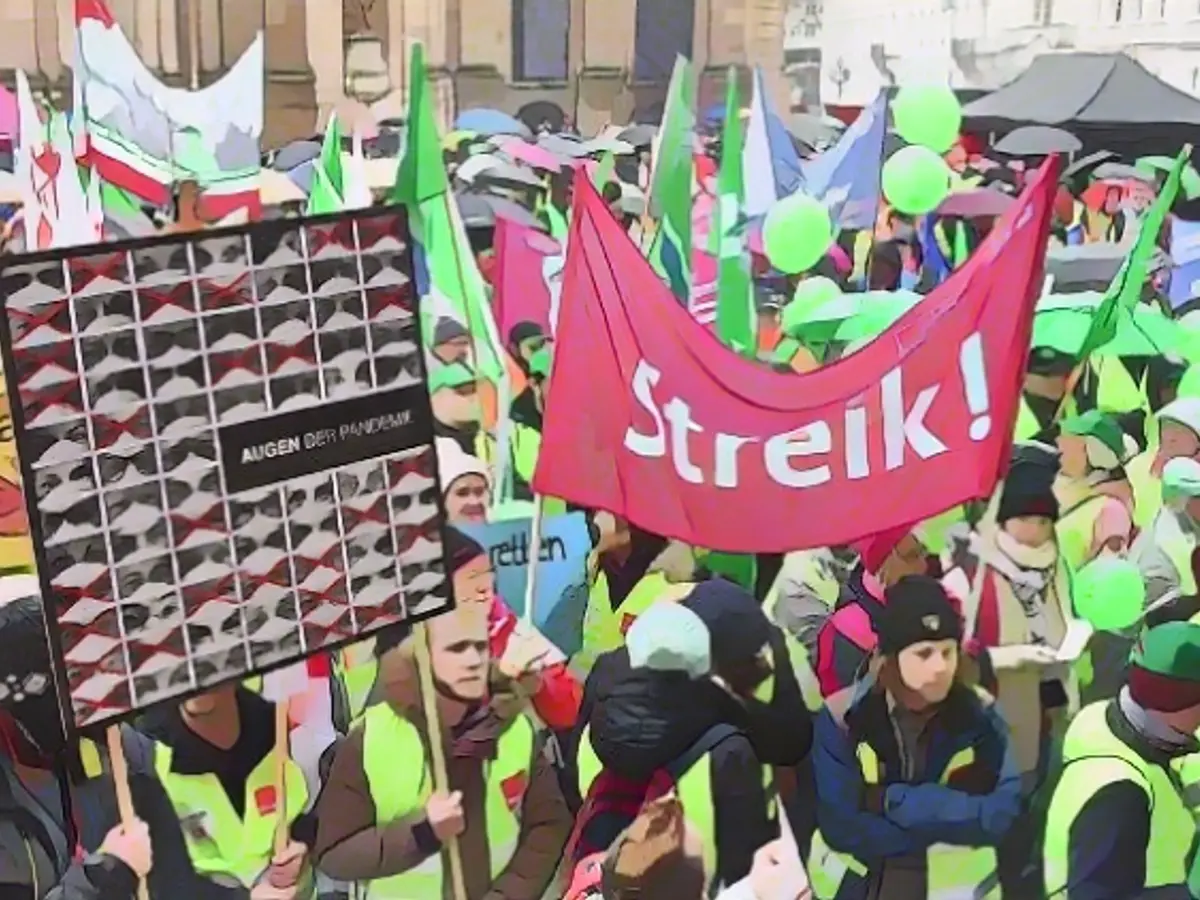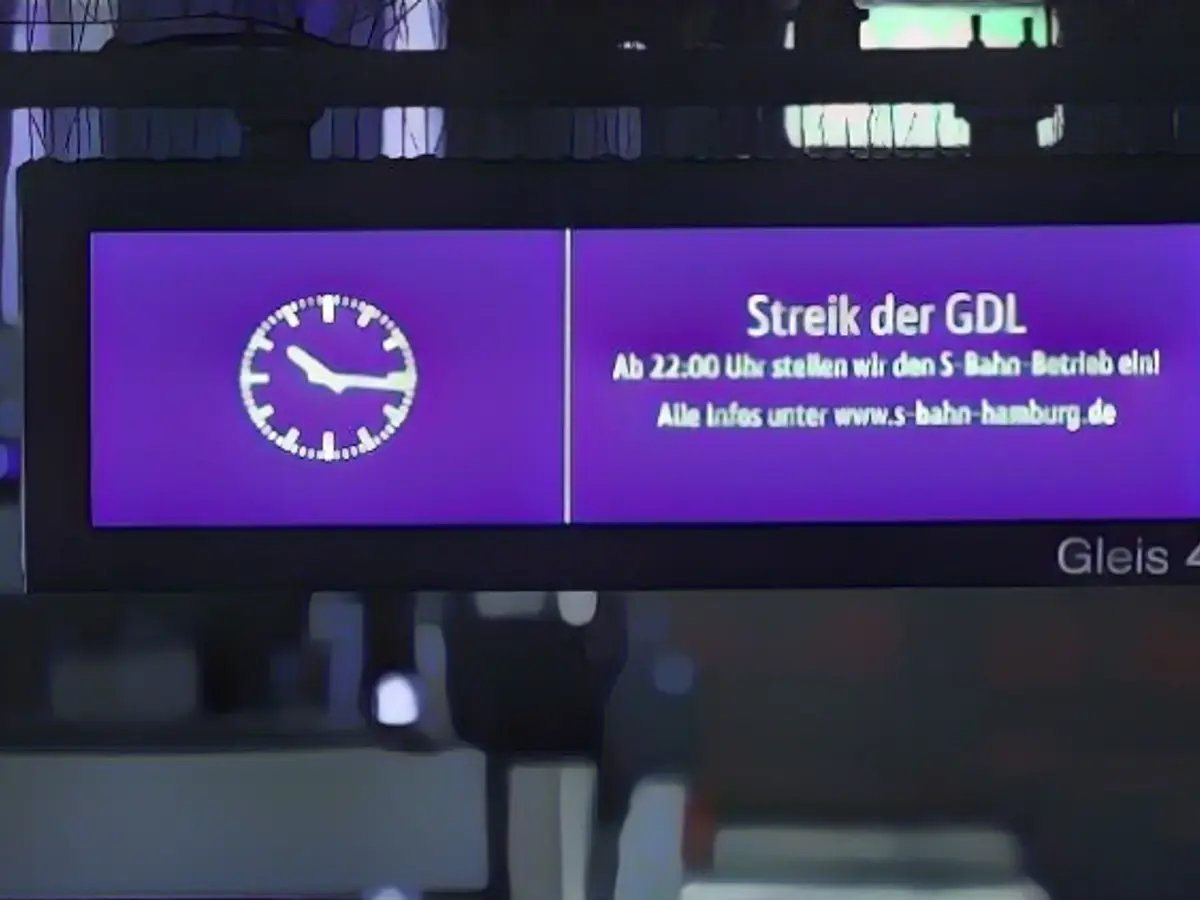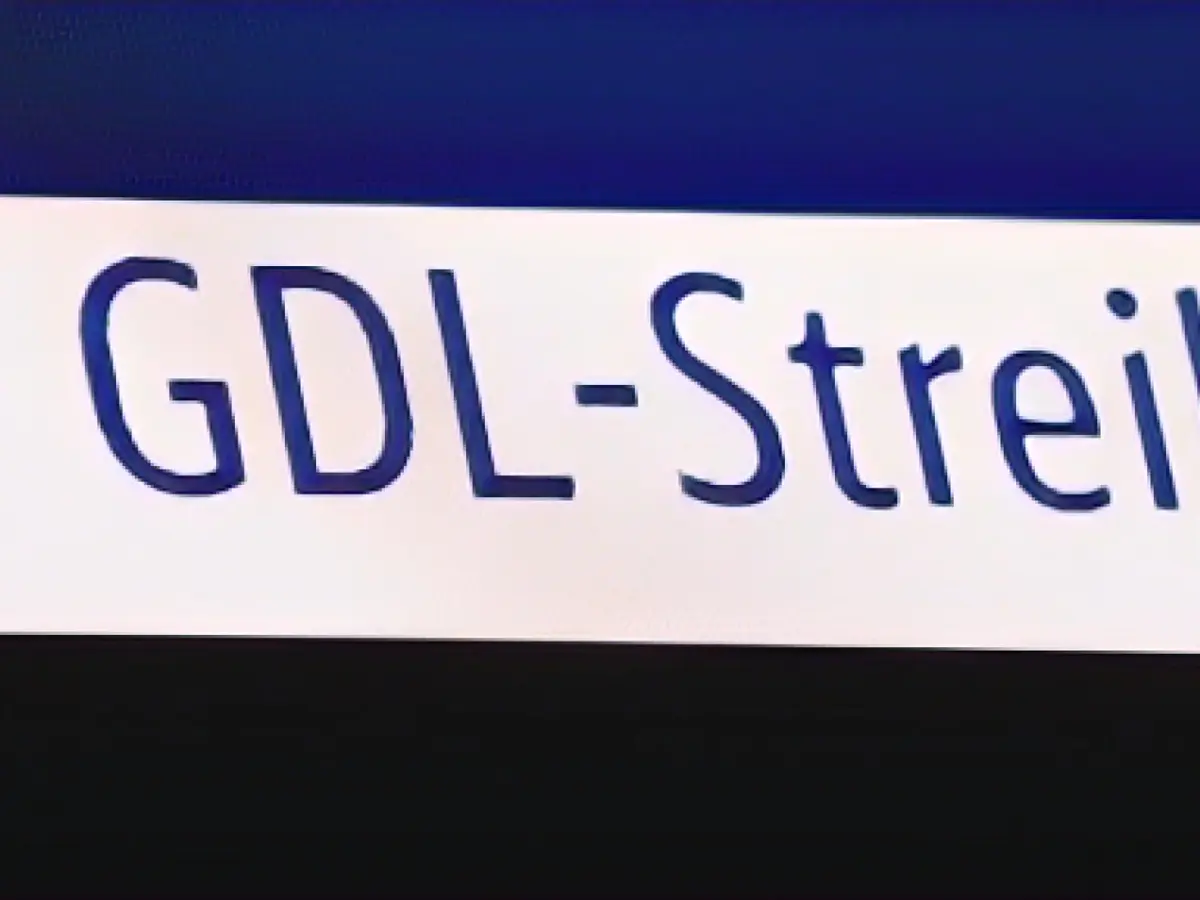Upshot of the Public Sector Wage Disputes in Germany
As the labor conflict in the German public sector intensifies, union representatives and employers will meet in Potsdam on Thursday for what could be the pivotal gathering in the negotiations. While there have been indications of progress, a consensual agreement remains uncertain. Let's delve into the main aspects of the ordeal:
Sectors under the Microscope
More than one million state employees are directly affected by the negotiations, potentially impacting more than three million individuals once the agreement is enforced. This group encompasses numerous professions, such as educators, medical professionals in universities and medical facilities, personnel in criminal justice and legal systems, and daycare staff based in Berlin. However, the state of Hesse holds out, as it is not involved in the Collective Bargaining Association of German States (TdL) discourses.
Union's Wish List
The German labor unions, spearheaded by Verdi and dbb, are demanding a 10.5% wage increase, with a base enhancement of 500 euros, and ideally 200 euros for junior staff. The discussions also revolve around subtle salary adjustments for civilians residing in Berlin, Hamburg, and Bremen.
Budget Limitations
The employers argue they are handicapped in fully adhering to the union's demands. The TdL chairman, Andreas Dressel, estimates the overall cost of full compliance to be approximately 20.7 billion euros. The Karlsruhe budget regulation could further curtail the provisions accessible to the federal states, distancing the fiscal situation even further.
Negotiations Beginnings
The negotiations stem from an accord reached in April for both the federal and local public sectors. Following a prolonged battle and mediation, the arrangement included a mix of non-taxable and taxable payments totaling 3,000 euros, an initial increment of 200 euros, and a subsequent 5.5% increase. Initially, the unions sought a 10.5% increase and at least 500 euros more during the present round of bargaining.
The Importance of the Federal and Local Government Agreement
The union advocates consider the April agreement crucial, as it plays a vital role in bridging the wage disparity between federal, state, and local government employees. Verdi president Frank Werneke expressed concern over the continuing deterioration of the staffing situation in the federal states if comparable wages are not achieved.
Federation States' Position
The states aim to preserve fiscal discipline, but Andreas Dressel, TdL chairman, suggests that adopting the April-settlement's wage structure could be an option, enabling swift one-off payments. However, the full recognition of the April settlement would impose an excessive financial burden of approximately 17 billion euros on the employers.
Controversial Points
The most controversial issues include the all-encompassing scale of a linear wage boost, in addition to the specifics and structure of one-time payments. Employers are vehemently opposed to city-state bonuses for Berlin, Hamburg, and Bremen. They argue that dispensing such bonuses could foster complications in other urban locations carrying high living costs.
Prospects for the Current Round
Union chiefs Frank Werneke and Ulrich Silberbach encourage the employers to table an offer. Werneke is optimistic that an agreement could be attainable, with several state finance ministers expressing their willingness to court such an accord. Meanwhile, Dressel reiterates the employers' intent, but budgetary constraints may stretch the negotiations into the weekend.
Potential Fallouts of a Potsdam Breakdown
If negotiations fail, arbitration avenues are unavailable for the federal states as they are for the federal government and local authorities. Werneke has suggested additional negotiation rounds and potential warning strikes. Berlin's dbb leader, Ulrich Silberbach, highlights the union's capability to engender mass strikes in pivotal areas within the federal states.
Bonus Insights: - German unions are also demanding an eight percent wage increase or 350 euros per month, in addition to three extra days off for employees and higher allowances for demanding professions, such as those in the healthcare sector. - Union leaders have announced a second round of public sector strikes, which may impact waste collection, daycare centers, and public transportation. - Verdi is intensifying efforts to mobilize workers, with recent demonstrations against the far-right and initiatives to integrate foreign workers into union action.








